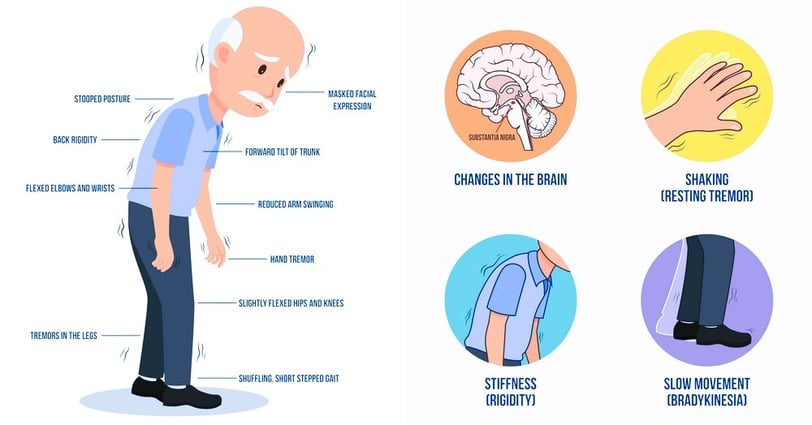Parkinsons Disease- Causes, Symptoms, Treatment
"Discover Parkinson's Disease: Causes, Symptoms, Treatment options, and expert insights. Parkinsons Disease effectively with our comprehensive guide." #neurodegenerative disorder


Understanding Parkinson's Disease
Parkinson's disease is a neurodegenerative disorder that affects the central nervous system. It is characterized by the progressive loss of dopamine-producing cells in the brain. Dopamine is a neurotransmitter that plays a crucial role in controlling movement and coordination.
Causes of Parkinson's Disease
The exact cause of Parkinson's disease is still unknown. However, researchers believe that a combination of genetic and environmental factors contribute to its development. Some studies suggest that certain genetic mutations can increase the risk of developing the disease. Exposure to certain toxins, such as pesticides and herbicides, may also play a role.
Symptoms of Parkinson's Disease
The symptoms of Parkinson's disease can vary from person to person and may develop gradually over time. The primary symptoms include:
Tremors or shaking, usually starting in the hands or fingers
Stiffness or rigidity in the muscles
Slowed movement
Impaired balance and coordination
Difficulty with speech and writing
In addition to these motor symptoms, Parkinson's disease can also cause non-motor symptoms, such as depression, anxiety, sleep disturbances, and cognitive changes.
Treatment for Parkinson's Disease
While there is currently no cure for Parkinson's disease, there are several treatment options available to manage its symptoms and improve quality of life. The primary treatment approach involves the use of medications that help increase dopamine levels in the brain. These medications can help alleviate motor symptoms and improve mobility.
In some cases, surgical interventions, such as deep brain stimulation, may be recommended. This procedure involves implanting electrodes into specific areas of the brain to help regulate abnormal electrical signals and reduce symptoms.
In addition to medication and surgery, physical therapy and occupational therapy can also be beneficial for individuals with Parkinson's disease. These therapies can help improve mobility, balance, and overall function.
Precautions for Parkinson's Disease
While Parkinson's disease cannot be prevented, there are certain precautions that individuals can take to manage the condition effectively:
Follow a healthy lifestyle: Maintain a balanced diet, engage in regular exercise, and get enough sleep.
Manage stress: Find healthy ways to cope with stress, such as practicing relaxation techniques or engaging in activities you enjoy.
Stay organized: Use tools like calendars, reminders, and checklists to help manage daily tasks and appointments.
Seek support: Join support groups or seek counseling to connect with others who understand the challenges of living with Parkinson's disease.
Stay informed: Stay up-to-date with the latest research and treatment options for Parkinson's disease.
It is important for individuals with Parkinson's disease to work closely with their healthcare team to develop a personalized treatment plan and make necessary adjustments as the disease progresses.
